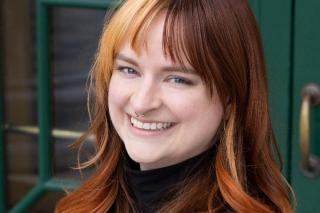Interview is edited for length and clarity.
What drew you to the field of gender and cultural studies?
It was a departure from my undergraduate degree in literature. I was a non-traditional student. I did not go straight from undergraduate school to my master's program; it was actually about an eight-year gap.
I used that time to think about what I wanted to get an advanced degree in and make sure it was something relevant to what I wanted to do professionally. I had relocated from California and found that Simmons had a program surrounding gender and cultural studies that I could engage in somewhat flexibly while working at the same time.
How did attending a women-centered institution impact your studies?
I found that Simmons is different from other women-centered institutions. They are much more inclusive and accepting of the trans community. In that regard, I did not pick Simmons for that reason, especially because my program was co-ed. However, upon learning that it was a women-centered institution, if it had not been more accepting in its policy that would have given me a pause and altered my decision.
How did Simmons prepare you for your current role?
Specifically, my work is centered around violence prevention education. Anything from educating about microaggressions or bystander intervention as well as more secondary prevention where people can get resources depending on the level of misconduct they may have experienced.
The way that my degree has contributed to my understanding is how I think uniquely in comparison to others in my field. Many of my colleagues have either a legal background or a social work background. I am the only one who has a gender and cultural studies advanced degree. I think it helps me approach how we educate a little differently and how to look at things more intersectional, as opposed to a more scientific approach in certain cases.
What advice would you give to students in the same master’s program?
Something I felt was important to my time in the master's program was structuring my time well, especially while I had to balance working full-time. Additionally, I would say utilize office hours with your professors as much as possible and speak up if you're struggling before something comes up rather than after.
I had to deal with irregular public transportation and getting to class on time since I would go to class right after work. I knew this about my own schedule. On the first day in every class, I would go up to all of my professors and communicate my situation to them. Being proactive about communicating made me feel better about having a strong relationship with my professors. That way, if something did come up, they would know where I was coming from and provided flexibility.
Did you feel a sense of community at Simmons?
I would say yes, among graduate students and undergraduate students since many of my classes were a mix of the two. While students tended to spend more time with people in their same program, there was a lot of camaraderie, especially when we were doing projects or assignments that needed a collaborative factor and were interdisciplinary in the making. I am still in touch with much of my original cohort along with students who started before me and started after me because of some slight overlap in our time at Simmons.

